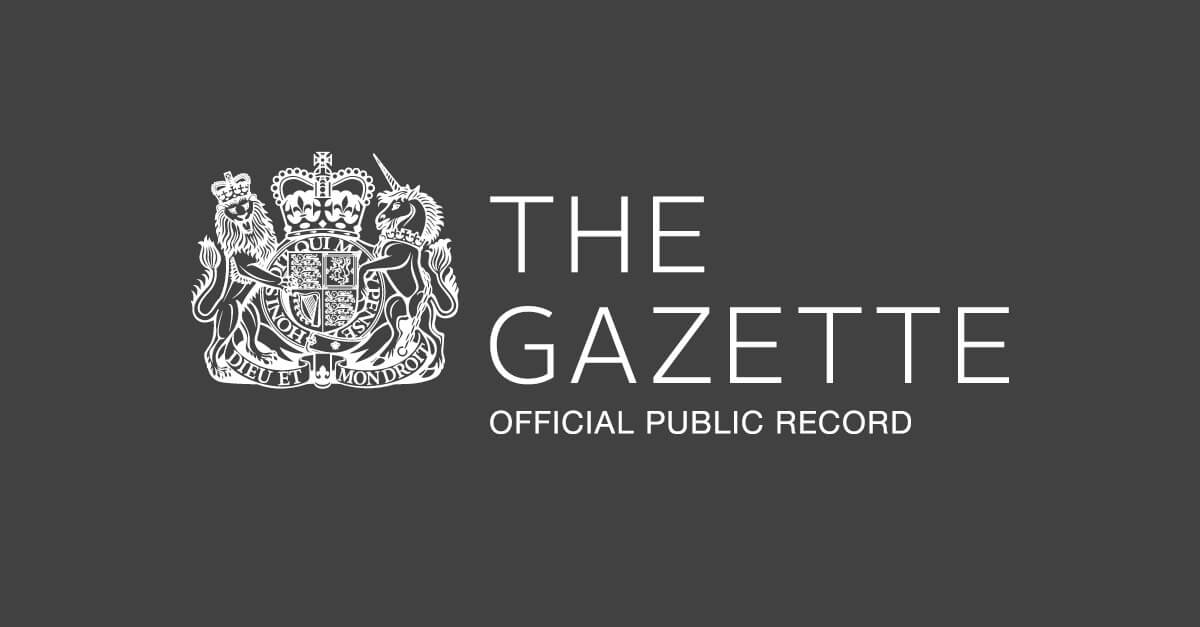How to Stop First Gazette Notice for Compulsory Strike-Off: A Step-by-Step Overview
How to Stop First Gazette Notice for Compulsory Strike-Off: A Step-by-Step Overview
Blog Article
A Comprehensive Analysis of the Lawful Obligations Bordering Gazette Notice Publication
The world of gazette notice publication is a labyrinth of lawful details that require careful focus. From the rigid legal demands regulating the material of notifications to the implications of non-compliance, navigating this landscape is no trivial task. Understanding the key regulation that dictates these responsibilities is critical for entities bound to disseminate notices with this official channel. However, the complexities extend beyond plain statutory obligations, discussing ideal techniques that can reinforce conformity efforts. As we unravel the layers of lawful commitments bordering gazette notice publication, a thorough analysis is necessary to grasp the gravity of these obligations and the ramifications of stopping working to comply with them.
Legal Needs for Gazette Notices

Legal demands for Gazette notices dictate the particular requirements that must be satisfied for the magazine of official notices in the Gazette. These demands are crucial to make certain transparency, liability, and lawful legitimacy in the dissemination of info to the public. One key demand is the accurate and total disclosure of info in the notification. This consists of information such as names, dates, addresses, and any various other appropriate specifics that are necessary for the notification to be helpful and actionable.
In addition, legal demands typically mandate the timely submission of notifications to the Gazette. Timeliness is important to guarantee that the details reaches the intended recipients within a reasonable duration, enabling them to take necessary activities or make educated choices quickly. Failing to stick to these timelines might result in lawful effects or make the notification inadequate.

Effects of Non-Compliance
Non-compliance with the laws established forth for Gazette notification publication can result in lawful consequences, financial charges, and reputational damages for the entity or specific accountable for the magazine. Failing to release notifications in the Gazette within the defined duration or incorrectly disseminating information can lead to obstacles in imposing legal rights, legal responsibilities, or lawful procedures. Furthermore, failing to fulfill the legal commitments surrounding Gazette notification publication could result in the invalidation of the notification itself, making it legally inefficient.
Key Regulation Governing Publication
Offered the essential ramifications more of non-compliance with Gazette notification publication needs, comprehending the key regulation governing this process is extremely important for guaranteeing legal adherence and keeping transparency. In addition, particular markets may have their very own policies pertaining to notice publication, such as environmental companies requiring particular announcements to be made public for openness and liability objectives. Comprehending these legislative structures he said is vital for companies and people liable for providing Gazette notices to stay clear of legal repercussions and support the concepts of good governance.
Entities Bound to Release Notifications
Entities accountable for the magazine of Gazette notices play an essential role in ensuring openness and lawful compliance within the structure of governmental policies. Official gazette workplaces offer as the key systems for the magazine of lawful notifications at the nationwide, state, or local levels, ensuring that such information is available to the public.
These entities are obliged to release notifications quickly and precisely to comply with lawful requirements and support the concepts of transparency and accountability in administration. Failing to release required notifications in a prompt way can lead to lawful effects, weakening the reputation and effectiveness of the regulatory framework. As a result, it is vital for these entities to meet their obligations carefully to preserve public trust and ensure that stakeholders are educated of significant lawful growths.
Best Practices for Compliance
To make sure adherence to go to the website legal commitments surrounding Gazette notification publication, it is essential for companies to carry out best practices for compliance that improve transparency and liability in distributing important information to stakeholders. One of the fundamental finest practices is to establish clear internal processes and guidelines for Gazette notice publication. This includes assigning responsibility to certain people or departments, establishing timelines for drafting and examining notifications, and making certain conformity with magazine needs.

Conclusion
Finally, recognizing the legal commitments surrounding gazette notification publication is important for entities to comply with key regulations. Failing to release notices in the gazette can have significant ramifications, consisting of lawful effects. It is important for companies to stick to ideal methods for compliance to ensure they fulfill their responsibilities under the legislation. Conformity with these needs is necessary to maintain openness and copyright the regulation of law.
Report this page